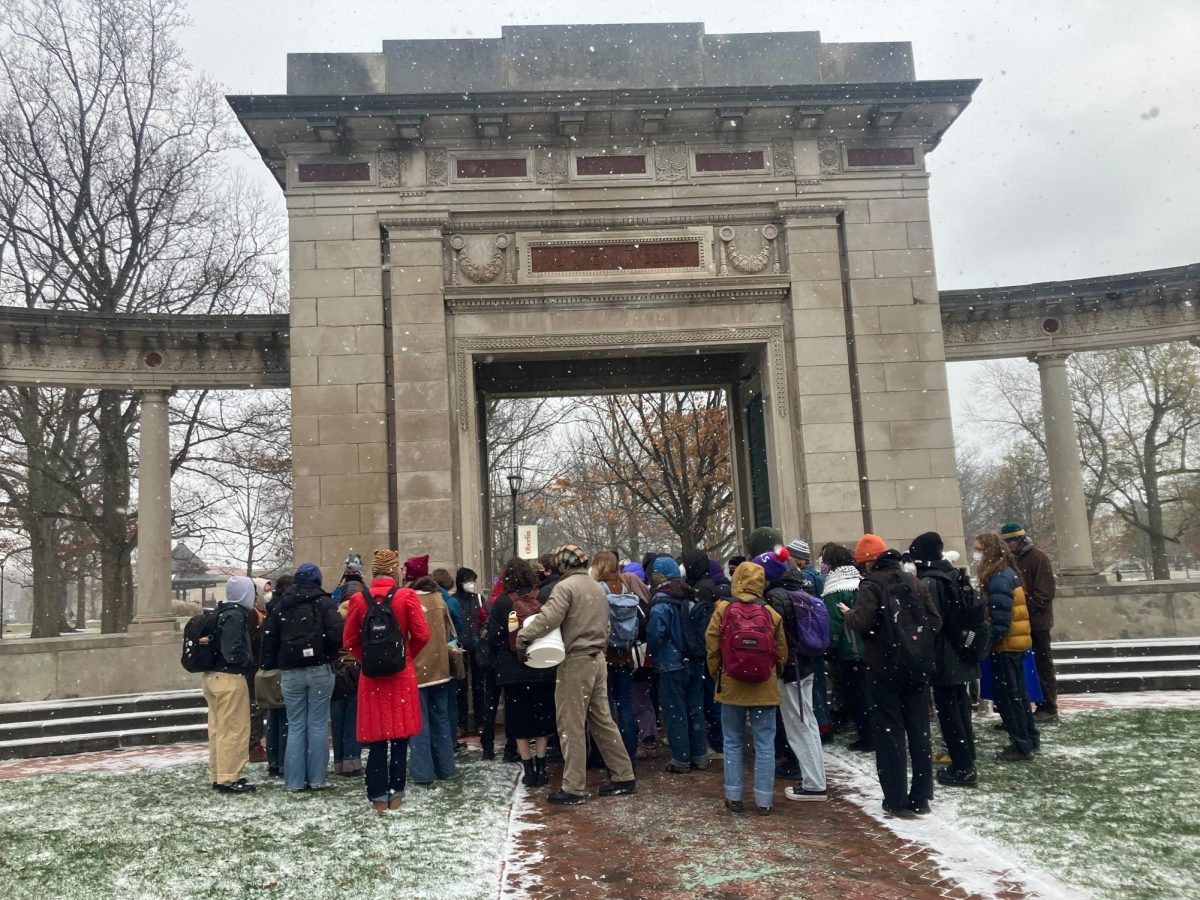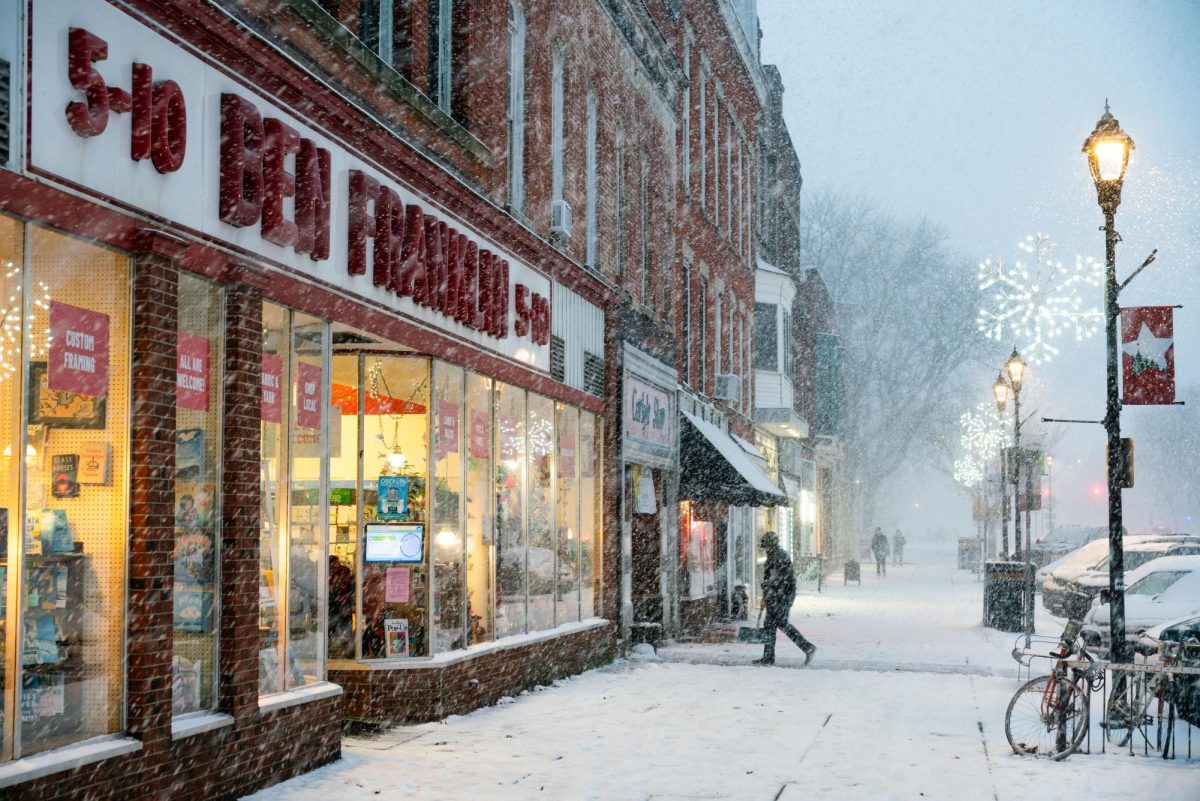For much of my adolescence, I wholeheartedly believed that I could save the world. You could call it a misguided savior complex or some sort of larger misunderstanding of how slowly bureaucratic wheels turned. Even if those were factors, I’m more inclined to attribute this belief to a larger narrative that my peers and I were fed from a young age about our capabilities and responsibility for warding off societal collapse. We were told from the start that it was our generation that was going to bring about large-scale change. I remember the adults in my life — teachers, coaches, my own family members — telling me that their hope for the future was in my hands. There wasn’t anything inherently wrong with their message. All they were saying was: “You have the power to bring about positive change.”
Faced with what seemed like impending doom on all sides — the climate crisis, continuous school shootings, a President who reveled in sowing discontent and proudly denigrated women, animals dying in the Amazon rainforest, polar ice caps melting, an economic system that kept the poor in poverty and the rich in excess — my peers and I, only just entering our preteens, were ready to take down the systems that suppressed us. We looked to Greta Thunberg, Malala Yousafzai, and X Gonzalez as proof that we too could hold the world’s attention with our passion for change.
Now, standing on the precipice of my 20th turn around the sun, I no longer hold that deep-rooted belief. Gen Z is not going to save the world. However, I also don’t subscribe to the belief which has been expressed repeatedly by older generations that Gen Z is, somehow, worse than the generations that preceded it. Through an older population’s eyes, Gen Z is cast in an unflattering light. Based on my Google predictive text, Gen Z is, “the most depressed,” and “the loneliest,” “too sensitive,” “soft.” There is nothing new with an older generation being discontent with a rising generation, but the ire aimed towards Gen Z has felt particularly damning.
Both of these ideas — that Gen Z is either the best or the worst generation — are misguided. They are built on a foundation that assumes Gen Z is somehow drastically different from previous generations. A quick Google search reveals articles with headlines like. “How Gen Z is ‘Radically Different’ from Past Generations,” “People Born After 1997 — Are They Just Better?” and “Gen Z Reports Suffering More Than Other Generations Did At Their Age.” Each of these articles were published within the past year, but it’s a narrative that’s been pushed for much longer. It’s not a narrative that is entirely pushed onto us, either. This othering is something we also participate in. The media, our leaders, and even our peers push this idea of generational exceptionalism — that Gen Z is somehow exceptional when compared to all that have come before us.
Taking these opposing accounts in stride, I would argue that this generational exceptionalism is incorrect. Gen Z is neither the best, nor the worst. In the grand scheme of things, Gen Z is just ok.
Yes, it’s true that we are the Digital Generation. We are the first generation to have grown up with personal technology at our fingertips. Then again, what generation hasn’t experienced some sort of unbelievable technological advancement in their lifetime. The Silent Generation had radio. Baby Boomers had household television. Gen X was the first to experience cordless telephones, VCRs, and mobile phones. Millennials were on the cusp of broadband internet. Yes, we are sitting on the border of ecological collapse. Yes, late stage capitalism can feel like a dystopia. But what generation hasn’t believed in their heart of hearts that they are the last frontier, that it will be with them that the world finally ends. From the Cold War to Y2K to 9/11, every generation has experienced an event that promised the end of the world as we knew it for generations of people.
Not only is generational exceptionalism inaccurate, it is additionally problematic because of the pressure it throws onto a single generation’s shoulders. For much of my childhood I truly believed that I would be able to save the world, but this meant that if the world didn’t get saved, all of that terror and hurt and destruction was implicitly on me. As we have grown up, this generation of children has watched as, despite our best efforts — our marches, our protests, our fundraisers, our speeches — the world just keeps getting worse. Ecological collapse is more imminent than ever, effective gun control legislation still seems to be years in the future, people are dying, and plants and animals are going extinct.
In the face of this destruction, many of my friends, passionate from childhood about making a difference, have grown apathetic. People who could talk circles around our middle school history teacher when it came to electoral politics now actively avoid anything pertaining to elections — national, local, or otherwise. Friends whose entire high school lives were defined by promoting campaigns to save the Earth now avoid straws, recycle, and do little else. We avoid the news. We avoid politics. The minutiae of everyday life has caught up with us — we are balancing university courses and jobs and worrying about our individual futures. There simply isn’t enough mental room to hold the weight of the world.
The fact is, change takes time. The problem with putting all of our hopes and despairs into a single generation of people is that seeing any substantive, long-term, large-scale change requires consistent effort over generations. Issues that have plagued our culture and planet for decades will not be solved in a handful of years. They may not even be solved in a lifetime. Individual generations cannot be held responsible for fixing the world — not Millennials, not Generation Z, and not Generation Alpha, who follows close behind. Large scale change will require work across, between, and over generations.
Gen Z isn’t anything special. It’s time we realize it.



